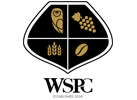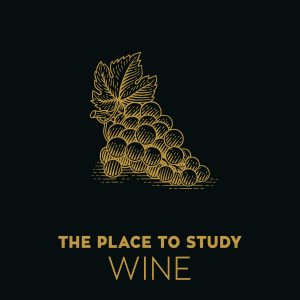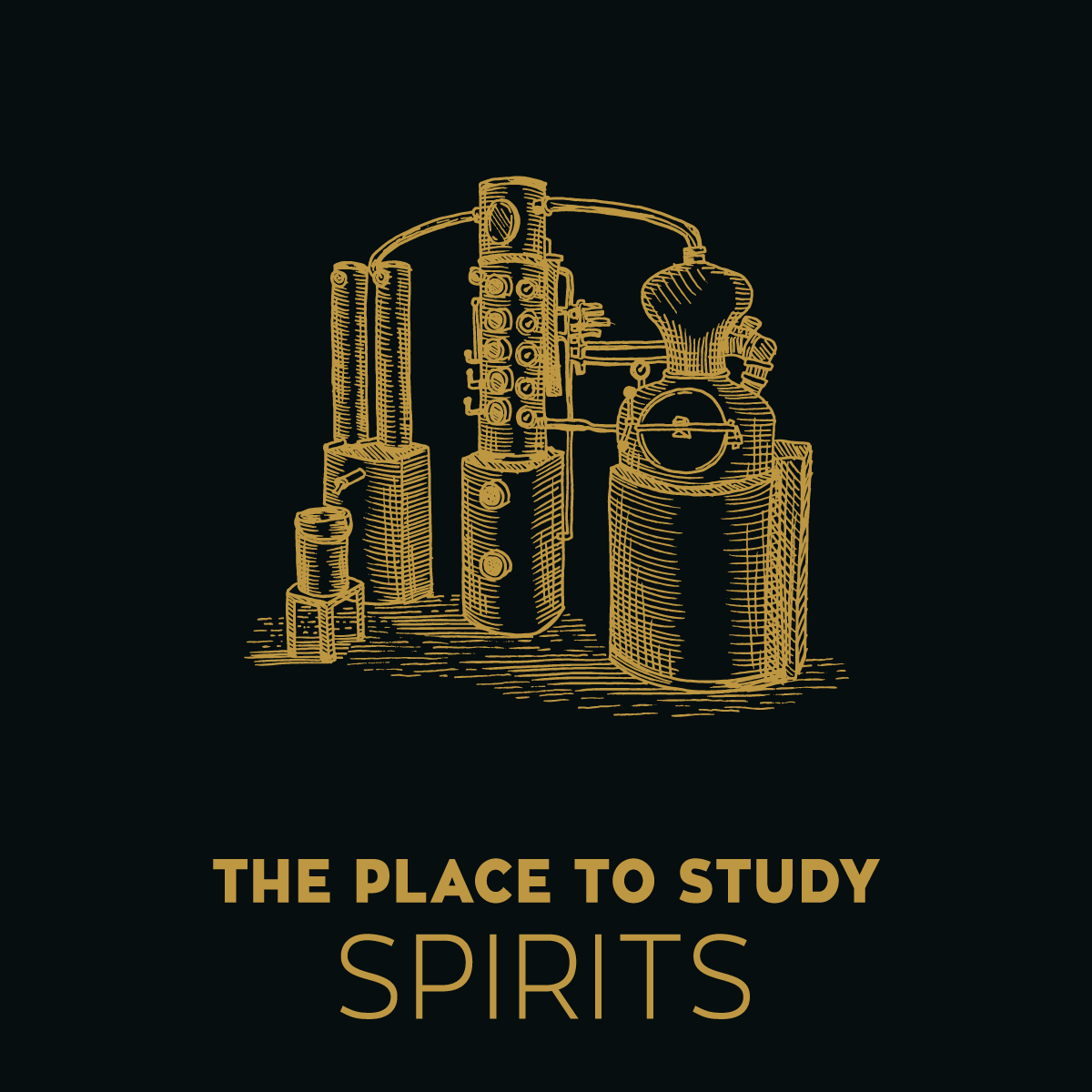1. What training does the WSPC provide?
On a global basis the training model provided by WSPC- Horizontal Learning across all Levels of Wine & Spirits Market – is geared to all disciplines of the market. “Horizontal Learning” means that we do not provide our students our specialised expertise in the sense of obtaining a qualification and / or degree as an Oenologist, wine-grower etc. Our students acquire a broad and deep knowledge over all the subjects pertaining to the sector (viticulture, oenology, wine-making, distillery, wine-tasting, marketing, legal aspects et al, all valuable in order to successfully meet the demands of their profession.
WSPC provides non-job specific education and resembles the methods and learning techniques used in the academic market for those studying at MBA studies level. It is geared towards wine producers, oenologists, Sommeliers, Bartenders, Baristas, Wholesalers, Retailers, business Professionals within the trade as well as Individuals / Wine lovers. WSPC Students, at the higher levels of studies – Advanced Certificate / Level 3 & Diploma / Level 4, acquire commercially relevant abilities to analyse and evaluate the quality-price ratio and the ability to investigative and understand the market and its structure. These abilities are important in all middle and senior management professionals such as Import Managers, Export Managers, Group Product Managers, Brand Managers, Sales Managers, F & B Managers, Winemakers and Chief Sommeliers.
One could say that the evaluation of a quality-price ratio is an common criteria for consumers as well. The Consumer’s behaviour on a daily basis is what affects the survival and fate of the products on the market. We consider it an honour that more and more consumers decide to acquire exactly the same knowledge as professionals, to share the same classrooms with the latter and take exactly the same exams.
Knowledge also increases the perception of the senses!
2. For whom are the WSPC curricula designed?
The WSPC programme – fully harmonized with the curricula of the Wine & Spirit Education Trust England, the Court of Master Sommeliers, the Beverage Standards Association (UK) and the Wine Scholar Guild (USA) – is geared to:
- employees of all wine production stages
- business executives seeking to be continuously informed on the latest developments in their field
- business executives seeking to obtain impeccable and internationally recognised training that will provide unique potential of advancement in their work and careers
- companies seeking to upgrade the staff of their departments, as well as to upgrade their products and services
- graduates and / or undergraduates of the Faculty of Food Technology & Nutrition – Department of Oenology and Beverage Technology, who, without needing to travel abroad to continue their further training, can instead choose to acquire the same knowledge and the same qualifications whilst staying in Greece and having the opportunity to work alongside their studies.
- young people over 18 years who want to enter the wines, spirits and beverages market as their professional career option
- consumers who want to better know wine and better appreciate its complexity.
3. In which languages are the courses taught in Greece?
The first three levels the students are taught in the Greek language.
The higher levels of studies, such as the Wine Scholar Guild the students are taught in Greek, but the exams are in English (multiple choice questions).
Taking the exam in English is an option at all levels (Levels 1-3). WSPC recommends that students sit the exam in English as early as level 1, firstly because the Greek market is inextricably linked to tourism. Secondly because a professional career may lead to the field of exports, and thirdly so students are familiarized with the English language from early on as the WSET Diploma – which is the pinnacle of the educational programmes – is only taught in English.
4. Can I continue my studies abroad and / or vice versa?
It is possible, if a student decides to change his location, for him/her to continue in whatever other authorized WSET England centre abroad. In this case, we transfer the student’s attendance information (ie: student code number, passing grade etc.) to the corresponding Approved Program Provider (APP) abroad. Please note that the most important thing is for the student to speak the native language of the country where the Centre is located.
Of course, the opposite is also possible. A student planning to be repatriated can continue his/her studies following the previous Level of Studies which he/she has successfully graduated in another country. The same applies to an International student who wishes to enrol in Greece.
5. Are the WSET, WSG & BSA diplomas recognised?
The WSET and BSA diplomas are recognized by the English state and the WSG diplomas are recognised by the U.S.A. What is most important however is that all certifications and all organizations affiliated with WSPC are recognized Internationally and also by the Greek market.
It is imperative that interprofessional education identifies with the real market – that the tutors are the professionals of the present and our graduates are the professionals of the future.
Even from the earliest years of WSPC’s operation, bright names and personalities in the field have honoured our classrooms. All companies within the wine and spirits industry have chosen to prepare their executives through the WSPC. The WSPC Studies Levels are considered as a criteria for evaluation of CVs by the relevant departments and / or managers of companies in the broader field of hospitality and tourism.
6. What do the lessons consist of?
At all levels of study the Course is divided into 2,5 hour lessons and each lesson is divided into two parts: the theoretical and the practical-tasting part. For the teaching of the theoretical part of the course, students are provided WSET books in Greek as well as WSPC’s study guides. Students have the option of acquiring the original textbook in English.
Regarding BSA, WSPC provides students with its own Greek textbooks, fully compliant with the requirements of the British organization.
WSG has English textbooks and a plethora of interactive educational techniques online that aid students in comprehending the subject matter and requirements as well in the successful completion of the exams. In addition, the textbook of each country is also provided in e-book form.
The practical-tasting part of the course, of all organizations, is covered by an excess number of wines and labels and/or an excess of educational hours and practical training in all educational unites in comparison to not only the Greek market but the International market as well. All course and/or practical training samples are in full accordance with the syllabus indicated by the WSET for each level of studies.
Attendance and successful graduation of each level of study is completed through examinations which each student is required to attend and pass so as to be considered a graduate and to continue his/her studies to the next Level of Study.
Just as the Structure / Syllabus of the educational programmes are set by England and the USA, so are the examinations fully controlled by our affiliated parent organization. About 7 days before the students sit the exams the Examinations Officer of each country receives the tests from England and the next working day after the exams, they are sent back to England for evaluation.
Finally, the companies that finance the tuition of the candidates attending our Educational Programmes are informed of the results of their subordinate colleagues.
7. What qualifications are required for registration?
No specific qualifications are required for registration of a prospective student, except that he/she should have completed 18 years of age and that he/she has successfully completed the previous prerequisite level of studies.
8. What level of Studies is it desirable/necessary to reach?
Professionals in the sector: For professional positions within the wine and spirits sector, it is considered necessary to study to at least Level 3 Studies (Advanced Certificate), thus acquiring a high level of knowledge of the Greek and international markets. Acquiring the leading WSET Diploma qualification could be considered essential for those Professionals who wish to acquire unique skills to help their personal and professional development or even their career in order to have the ability to display their knowledge in a manner suited to the competitive international and local wine, spirits, sommellerie and non-alcoholic beverages market.
Individuals / Wine lovers: Individuals – Wine-lovers – simple consumers can comfortably attend up to WSPC Level 2 of studies. Upon conclusion they will have covered the knowledge of the basics of world wines varieties as well as of the correct wine and food matching. In this way they will have acquired adequate knowledge essential in both their social events (restaurant) as well as in their daily lives (home). They will feel more able to choose for themselves “labels” from restaurant wine-lists and can easily navigate a cellar in search of a suitable wine to accompany their meal at home.
It is worth mentioning here that the all the individuals / Wine-lovers who have attended Level 3 of studies (WSET Advanced Certificate) have almost always graduated successfully. They then quite seriously consider the possibility of continuing their studies to WSET Diploma level, in spite of the fact that it is considered, internationally as one of the most difficult Diplomas in the world.
It is also noteworthy that individuals / wine-lovers taking exam usually score higher than professionals do. This is evidence of their need – both emotional and pragmatic – to learn as much as they can about wine and spirits, and to satisfy their continuous thirst for knowledge about them.
9. How often do courses start in Athens and other cities?
Click here to see our Detailed course schedule
10. What is the length of the course in Athens and other cities?
ATHENS
At all levels, studies in Athens are realized either in-person or online, or in Hybrid form as follows:
- Once a week (morning or afternoon). These courses are called “Regular”.
- Classes can be conducted on consecutive days with a class duration of 2,5 hours. These courses are called “mixed intensity”.
- Consecutive days with a class duration of 5 hours. These classes are called “Intensive”.
A student attending Combo courses may select to attend a particular level in-person and other levels online. This form of “mixed attendance” is called “Hybrid”.
Level 1 has a duration of 13 hours (including examinations)
Level 2 – Athens lasts 27 hours weeks (including examinations)
Level 3 – Athens lasts 43 hours (including examinations)
Hestia Advanced Certificate/ 3rd Level (Greek Vineyards) has a duration of 37,5 hours (including examinations).
The Level 4/ WSET Diploma, has a duration of 163 hours (including examinations) that are spread across 14 months and take place in 4 blocks of consecutive days: one week approximately every March, June, October and again the next March.
The Level 1 in Spirits has a duration of 7 hours (including examinations) and the in-person course takes place in one day.
The Level 2 in Spirits lasts has a duration of 26 hours (including examinations).
The Modern Sommelier Study Program has a duration of 26 hours(including examinations).
The Spanish Wine Scholar has a duration of 19 hours (including examinations).
The Italian Wine Scholar/ Unit 1 has a duration of 17 hours (including examinations)
The Italian Wine Scholar/ Unit 2 has a duration of 17 hours (including examinations)
The French Wine Scholar/ Unit 1 has a duration of 27 hours (including examinations).
OTHER GREEK CITIES
All Levels Studies carried out in other Greek cities except Athens, are always conducted in intensive form. The creation of a single department with teaching hours of 14:00 to 19:00 or 10:00 – 15:00 to incorporate the working hours of both professionals from the catering and those from other areas was deemed necessary.
Intensive Level 1 is completed within two consecutive days. For the exams a minimum of one week’s break is needed in order for students to have time to study. Therefore, exams usually take place about one or two weeks after the tuition and last around three hours.
Intensive Level 1 in Spirits is completed within one (1) day. All day programme.
Intensive Level 2 in Wines and Spirits are both completed within 5 days. For the convenience of students the five days are divided into two weeks. During the first week, students are taught part of the material within 2 five-hour sessions (2 days x 5 hours tuition a day), and the second week, students are taught part of the material within 3 five- hours sessions (3 days x 5 hours tuition a day) or vice versa.
Intensive WSET Level 3 and HESTIA Advanced Certificate are completed in 9 days (exam included). In each case, the tuition timetable depends on the town where the course takes place according to its geographical position and how easy/hard it is to access.
The educational programmes for Coffee/ Cocoa/ Tea and Smoothies take place at the WSPC Coffee-Cocoa – Tea Lab, at the organization’s headquarters in Athens, at a state of the art, ingenious 50 sq. metres laboratory – approved by BSA, for practical training of professional as well as coffee/beverage lovers.





